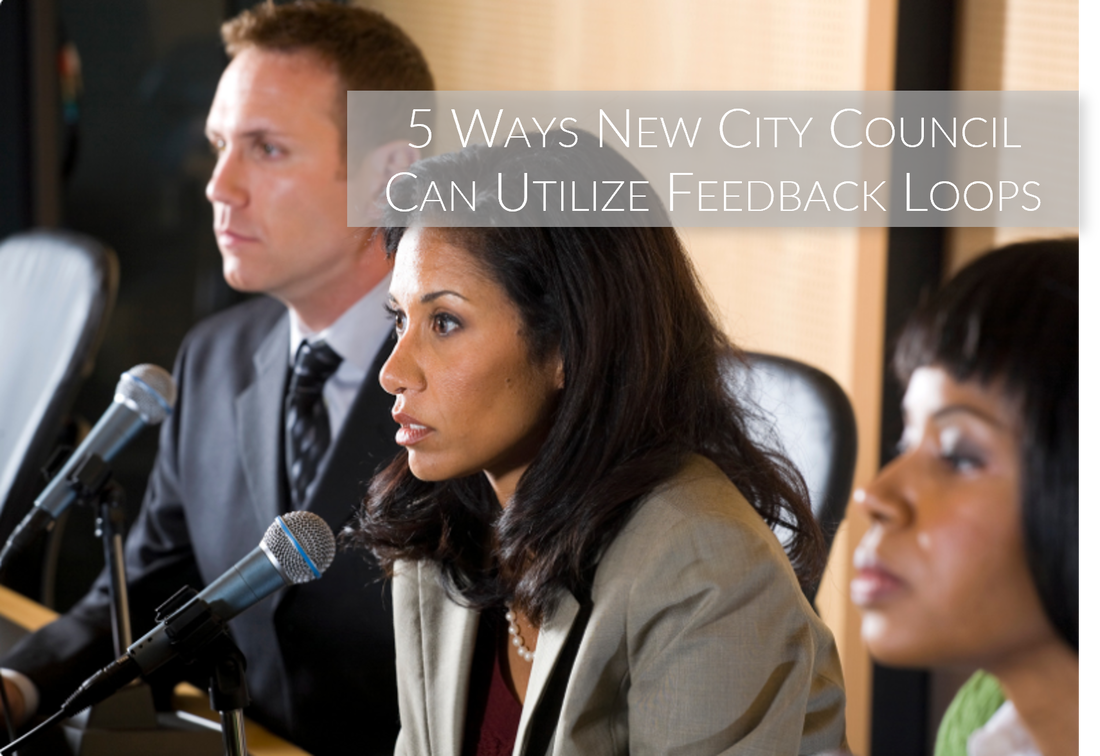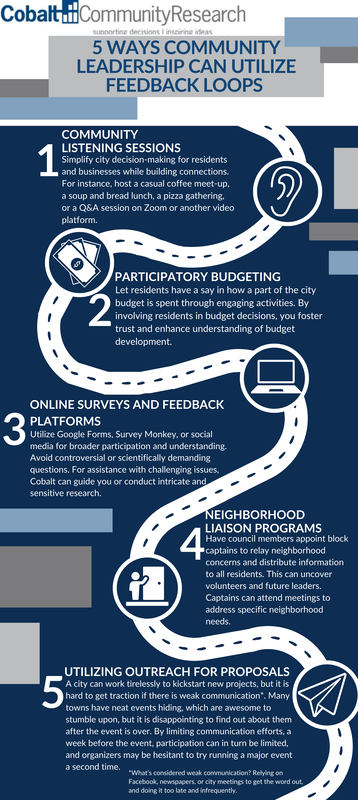|
As national politics begin to light up national media and local conversations once again, here is a reminder of simple ways newly elected community leaders can stay grounded.
Community Listening Sessions: People always have something to say, so why not use that energy as a resource? In doing so city council members can continue to use and strengthen conversations and deliberate channels that help residents and businesses feel heard and help them understand the ins and outs of city decision making – while strengthening relationships instead of straining them. Simple examples: a scheduled coffee time at the local café, a soup and bread luncheon, pizza at a community forum, or a community Q&A via Zoom or your favorite videoconferencing platform. Online Surveys and Feedback Platforms: Implementing user-friendly online surveys and feedback platforms to gather input from community members who may not participate as much in face-to-face listening sessions. Doing simple online polls using Google Forms, Survey Monkey, or on Facebook and other social media can expand participation and understanding. Be careful to avoid questions that might be controversial or may require more scientific, representative data collection. If you need help with a thorny issue, Cobalt can help point you in the right direction or even do more complicated or sensitive research Participatory Budgeting: Participatory budgeting allows residents to directly influence the allocation of a portion of the city budget by voting on specific projects or initiatives using fun, interactive activities. By letting residents be part of developing the community budget, you build trust and expand understanding of the expenses and tradeoffs in budget development. Neighborhood Liaison Programs: Consider asking council members to identify block captains or street liaisons to share neighborhood concerns and push information like fliers and FAQs to everyone’s front doors. This builds a direct communication channel between city leaders and the public – and it also may be a wonderful way to find volunteers and future leaders. Captains/liaisons can regularly attend an informal weekly meeting to share information and ideas. They can grow into a special group of advisors, to gather insights into difficult issues and ensure that the unique needs of each neighborhood are considered. Utilizing Community Outreach for Proposals: Awareness of issues and options is crucial for successful initiatives. A city can work tirelessly to procure clean water, launch youth programs, and kickstart fresh new events, but it is hard to get traction if there is weak communication. Examples of weak communication? Relying on Facebook, newspapers, or city meetings to get the word out, and doing it too late and infrequently. Many towns have neat events hiding in pockets of the downtown area. These are awesome to stumble upon, but it is disappointing to find out about them after the event is over. By limiting communication efforts to one or two information channels a week before the event, participation can be limited, and organizers may be hesitant to try running a major event a second time. Reflecting on effective strategies tailored to your city is crucial. Embrace inclusive, informal community outreach for transparent communication, let these principles be the foundation for a city council that gets a strong start that stays strong for years to come. For more information on how Cobalt can help you adapt and thrive in the changing demographic, economic and social environment, visit the Cobalt website or reach out to us by email. Let us know if you need anything at all for benchmarking or research data; we are here for you.
Cobalt Community Research is a national 501c3 nonprofit, non-partisan coalition that helps local governments, schools and membership organizations measure, benchmark, and affordably engage communities through high-quality metrics, mobile geofencing data, surveys, and dynamic population segmentation. Cobalt combines big data with local insights to help organizations thrive as changes emerge in the economic, demographic and social landscape. Explore how we can help. |

|

